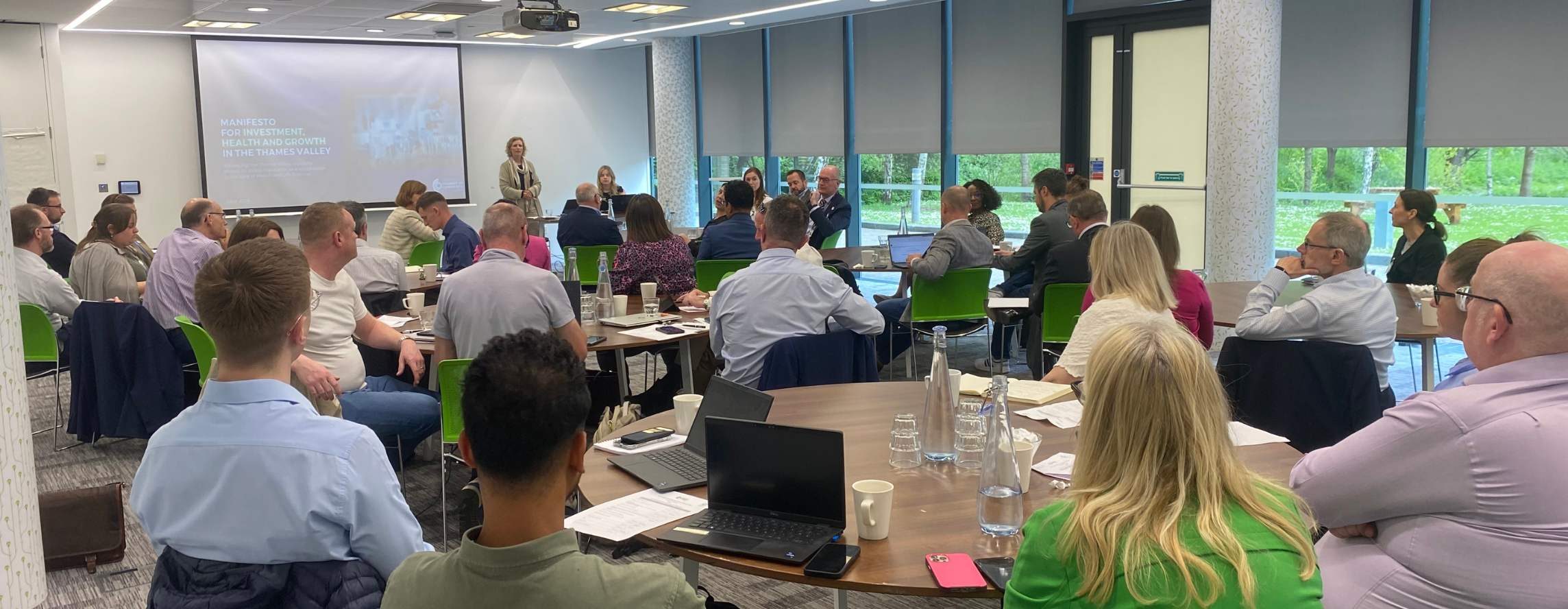The Thames Valley’s Health and Life Sciences Working Group recently convened at the premises of its sponsors Green Park, with a focus on addressing critical issues within the sector and promoting collaboration within the region. Hosted by Sue Staunton, Managing Partner at JamesCowperKreston, the event welcomed esteemed professionals from various backgrounds.
The highlight of the meeting was the guest speaker, Andy Collier, Regulatory Policy Manager from The Association of the British Pharmaceutical Industry (ABPI), who shed light on the challenges facing the sector in terms of regulation. He emphasised the importance of effectively communicating these issues to the government, in order to establish frameworks that support innovation and patient care in 2024 and beyond. Regulation has emerged as a pivotal topic in recent meetings, indicating its significance for the industry’s stakeholders.
In the wake of the upcoming elections, it is imperative for stakeholders to come together, leveraging regional collaboration to effectively communicate the sector’s requirements and shape policies that support its innovation and growth. The Working Group serves as a crucial platform for aligning priorities and articulating a unified vision.
Businesses interested in participating in future Health and Life Sciences Working Group meetings are encouraged to register their interest by contacting brp@tvchamber.co.uk.
We interviewed the Chair of the working group, Sue Staunton, to find out more about the progression of the group moving forward and its moves to engage the government in 2024.
You have been Chair of the Working Group for the last year, how have you seen it develop in that time?
Sue: Over the past year, the Thames Valley’s Health and Life Sciences Working Group has seen significant growth and progress. We have continued to expand our membership to include a wide range of stakeholders, from healthcare providers, research institutions to large pharmaceutical companies. This has allowed us to foster greater collaboration within the group and the region as a whole, promoting more active engagement in various initiatives to address key challenges in the sector.
That sounds promising. How does the working group provide opportunities for businesses to come together and voice both their successes and issues in the region?
Sue: We meet on a quarterly basis which enables businesses to share their experiences with other experts in the field, but also to network and discuss collaboration opportunities to support opportunities within the region. We also actively engage with policymakers and other key stakeholders to ensure that the concerns and priorities of the room are heard and addressed. By providing a platform for open dialogue, we aim to foster a supportive ecosystem that enables businesses to thrive and contribute to the region’s growth.
Looking ahead, what are the key priorities for the Working Group as it moves forward?
Sue: Moving forward, our focus will be on driving innovation, promoting investment, pushing the government to address regulatory issues, and a unified focus around AI in Healthcare. We will continue to work closely with our members and partners to identify opportunities for growth and development, as well as to advocate for policies that support the long-term sustainability of the industry. Additionally, we hope to further our engagement with key policymakers in 2024, with an important year of elections, it is vital for us to get the voices of the region heard.
Lastly, could you tell us about the manifesto produced by the voices of the Working Group members and its forthcoming publication?
Sue: Absolutely. The manifesto represents a collective vision and set of priorities identified by our members for advancing the health and life sciences sector in the Thames Valley region. It outlines key policy recommendations and initiatives aimed at driving innovation, fostering collaboration, and supporting the growth of businesses in the sector. The manifesto will be published next month and will serve as a roadmap for policymakers, stakeholders, and industry leaders to guide future decision-making and investment efforts in regard to the Health and Life Sciences Sector in the Thames Valley Region.

